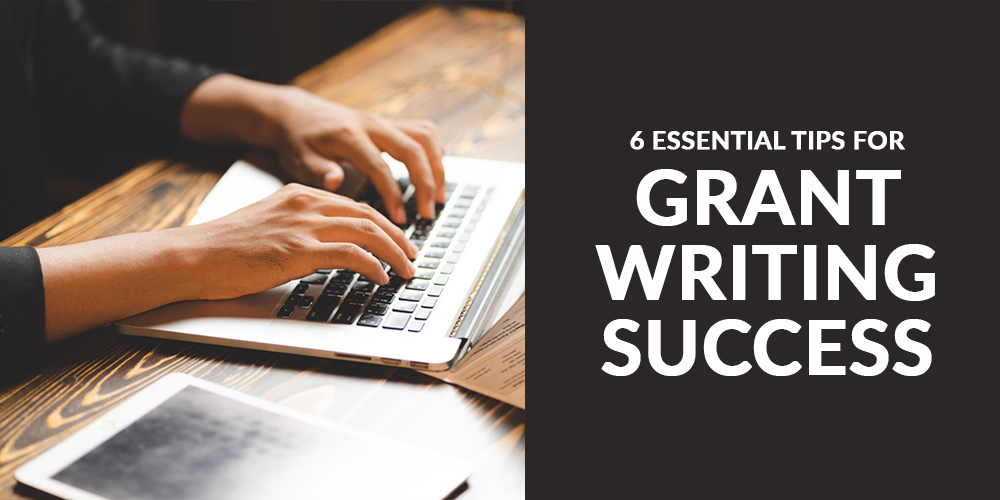6 Essential Tips for Grant Writing Success
Grant writing is an important skill for many organisations, especially non-profits who seek to expand or introduce new projects and initiatives. Luckily, there are some key strategies that any grant writer can use to ensure success. In this article, we look at some essential tips for grant writing success that all grant writers should know. With these tips and some hard work, you too can become a successful grant writer who consistently writes winning grants!
Tip 1: Understand Grant Writing Basics
Whether you’re applying for a federal or state grant, the same basic principles apply. Research is one of the most important steps when beginning your grant application process. Knowing who is granting money and what their criteria are will give you an idea of which programs align with your needs and goals. Understanding how to craft a compelling proposal is another critical element to securing funding—even if the project seems simple, it’s important to understand exactly what information needs to be included to stand out from other applicants. Finally, ensuring that all documentation regarding budgeting and finances is accurate and up-to-date is essential before submitting an application.
Tip 2: Research Opportunities
Achieving success in the competitive world of grant writing requires thoughtful preparation and research. That’s why it’s important to take advantage of every opportunity that comes your way as a grant writer, yet not expend time and energy on grants which are a poor fit to either your organisation or project.
Take the time to thoroughly examine potential grants before starting to work on your application, so you can maximise your chances at receiving funding. Read through all eligibility criteria thoroughly and make sure you meet them before submitting an application. Most grants will also contain a list of what will be considered versus what will not be funded, so it is vital you confirm your project fits within these boundaries. Additionally, you should check any financial contributions which your organisation is expected to make to ensure you can meet this commitment. Finally, ensure you understand any timing constraints for project completion to ensure that you can meet these requirements.
Tip 3: Write Convincingly
Grant writers who can craft convincing arguments in your grant writing can make all the difference between their applications being accepted or rejected.
It is important for the grant writer to understand what makes an argument persuasive and how to communicate their message effectively for it to be convincing. A good starting point is researching the organisation you are applying for, understanding what they look for from applicants and familiarising yourself with their mission statement. This will help you learn which types of grants and projects interest them most, allowing you to tailor your request accordingly.
When writing your proposal, make sure that you write in an articulate and persuasive way that appeals to the reader on both an emotional and logical level using language that reflects enthusiasm and commitment towards your project. Make use of powerful language such as action verbs and credible evidence to substantiate your case. Ensure all points are supported with examples or data to drive home the message. Additionally, be sure to check grammar, spelling and syntax; errors can hurt credibility and detract from the overall quality of your proposal.
Tip 4: Tailor to Funders
As a grant writer, you know that success means more than just having the right skills and knowledge. To be successful in this field, you must also tailor your proposals to fit the needs of each funder. Every funder has different requirements and preferences when it comes to evaluating proposals. As a grant writer, it’s essential that you take the time to research potential funders and their specific criteria before submitting any applications or proposals. By researching the background of each potential funding source and understanding their priorities, goals, and interests, you can tailor your proposal to meet their individual requirements for maximum success.
Tip 5: Utilise Resources
For those looking to become successful grant writers, it is important to utilise the best resources available.
From in-person workshops to online tutorials, there are plenty of options when it comes to learning how to write effective grants. Additionally, some organisations or professional associations have specific resources designed for grant writers such as guidelines on how to apply for a particular government program or webinars that provide expert advice on developing strong proposals.
Quite often the best resource you can turn to are experienced grant writers, utilising their services and guidance to critique your grant writing endeavours, write specific portions for you, or complete the entire application on your organisation’s behalf. Professional grant writers have greater success rates, due to their vast experience in being able to craft winning grant responses.
No matter what type of resource you choose, utilising any of these tools can help ensure your success when it comes to grant writing.
Tip 6: Anticipate Questions
As a grant writer, it’s important to imagine yourself in the shoes of your reader and anticipate their questions. A common request from funders is for additional information such as budget outlines and previous project results. Additionally, they may want to know exactly how the funds are going to be used, who will benefit from them, and what kind of impact they’ll have on the community. This can all be provided in your proposal, but it must be easily understood by the funder.
Conclusion
Grant writing is a skill that can be learned with dedication and practice. With the right knowledge, resources, and strategies, any grant writer can become successful. By understanding the basics of grant writing, researching opportunities, writing convincingly, tailoring to funders, and anticipating questions- you will be on your way to becoming a successful grant writer. Start today by taking small steps towards success and have confidence in the process.

